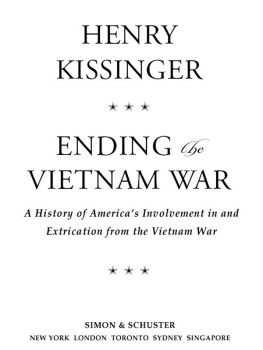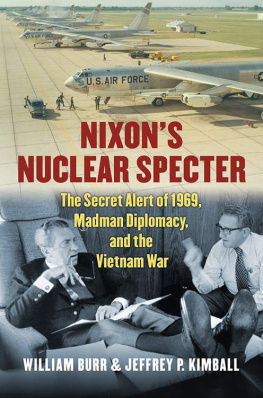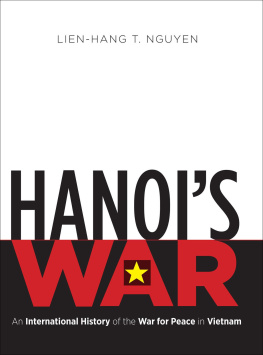Thank you for downloading this Simon & Schuster ebook.
Get a FREE ebook when you join our mailing list. Plus, get updates on new releases, deals, recommended reads, and more from Simon & Schuster. Click below to sign up and see terms and conditions.
CLICK HERE TO SIGN UP
Already a subscriber? Provide your email again so we can register this ebook and send you more of what you like to read. You will continue to receive exclusive offers in your inbox.

To the memory of Nelson Aldrich Rockefeller
Contents
List of Illustrations
List of Maps
(Maps by Dick Sanderson)
Foreword
F OR better or worse I was called upon to play a prominent role in the making and execution of United States foreign policy, first as President Nixons Assistant for National Security Affairs and later as Secretary of State under President Nixon and President Ford. This book is an account of our foreign policy during the first term of Richard Nixons Presidencyfrom my appointment as national security adviser after the November 1968 election through the end of the Vietnam negotiations, roughly coincident with Nixons second inauguration in January 1973. Inevitably, it is history seen through my eyesa portrayal of what I saw and thought and didand inevitably I have had to select and compress. A complete record in the historians sense must await the publication of other documents, memoirs, and biographiesnot all of American origin.
The period covered in this volume was marked by domestic division and international turmoil; it witnessed Americas passage into a world in which we were no longer predominant though still vastly influential. It was a painful transition, not, I hope, without achievement, that began the process of a new and in the long run perhaps even more seminal American contribution to the prospects of free societies. For some, the treatment in this volume of controversial matters, especially the Vietnam war, will be the view from a side of the barricades unfamiliar to them. It is put forward here as honestly as possible, with the intention to reconcile, not to score retrospective debating points. As a nation we can transcend our divisions only by recognizing that serious people manned both sides of those barricades.
In a subsequent volume I intend to cover the period from January 1973 to January 1977, during most of which I was Secretary of State. That volume will discuss such matters as Watergate and the resignation of Richard Nixon; the October 1973 Middle East war and the shuttle diplomacy that followed; international economic problems such as the oil crisis and the North-South dialogue; Southern Africa; the fall of Salvador Allende and our Latin American policy; the Communist takeover of Indochina; negotiations on SALT II; the evolution of our relations with China; the Presidency of Gerald Ford and the 1976 election campaign; and others. On some topics I may hark back to events in the 1969-1972 period that were omitted here for reasons of space or continuity. Readers who hold this weighty volume in their hands may find it hard to believe that anything was left out, but will perhaps be grateful that some matters were indeed deferred to a second volume.
In writing this account I have tried to keep reliance on memory to a minimum; I have been able to refer to much documentary evidence and, for part of this period, to a diary I kept. I intend to leave an annotated copy of this volume with my papers for the use of scholars who may someday pursue the period in greater detail.
One of the paradoxes of the age of the memorandum and the Xerox machine, of proliferating bureaucracies and compulsive record-keeping, is that the writing of history may have become nearly impossible.
When an historian deals with previous centuries, the problem is to find sufficient contemporary material; when he writes of modern diplomacy, the problem is to avoid being inundated by it. If a scholar of impeccable credentials and unassailable objectivity were given free run of the millions of documents of any modern four-year period, he would have the greatest difficulty knowing where to begin. The written record would by its very volume obscure as much as it illuminated; it would provide no criteria for determining which documents were produced to provide an alibi and which genuinely guided decisions, which reflected actual participation and which were prepared in ignorance of crucial events. Before the era of instantaneous communication, instructions to a negotiator had to be conceptual and therefore they gave an insight into the thinking of statesmen; in the age of the teletype they are usually tactical or technical and therefore are silent about larger purposes and premises. Official files of our period would not necessarily disclose what decisions were taken by backchannels bypassing formal procedures or what was settled orally without ever becoming part of the formal record. A participants account of conversations can easily be ex post facto self-justification. (Dean Acheson once said that he never read a report of a conversation in which the author came out second best in the argument.) By a selective presentation of documents one can prove almost anything. Contemporary practices of unauthorized or liberalized disclosure come close to ensuring that every document is written with an eye to self-protection. The journalists gain is the historians loss.
The participant in great events is of course not immune to these tendencies when he writes his account. Obviously, his perspective will be affected by his own involvement; the impulse to explain merges with the impulse to defend. But the participant has at least one vital contribution to make to the writing of history: He will know which of the myriad of possible considerations in fact influenced the decisions in which he was involved; he will be aware of which documents reflect the reality as he perceived it; he will be able to recall what views were taken seriously, which were rejected, and the reasoning behind the choices made. None of this proves that his judgment was rightonly what it was based upon. If done with detachment, a participants memoir may help future historians judge how things really appeared, even (and perhaps especially) when in the fullness of time more evidence becomes available about all dimensions of the events.
I owe a deep debt of gratitude to those who helped me in the preparation of this book. Peter W. Rodman, friend, confidant, and invaluable associate for a decade and a half, supervised the research, undertook major research himself, and helped with editing, checking, and many other chores. Without him this work could never have been completed. William G. Hyland, another trusted associate and longtime friend, contributed enormously to the research, especially on Europe, East-West relations, and SALT. Rosemary Neaher Niehuss and Mary E. Brownell, also colleagues of mine in government, were exceptionally skilled, dedicated, and helpful in their research and review of the manuscript.
Winston Lord and William D. Rogers permitted me to impose on their friendship to read the entire book. They made innumerable wise suggestions and an invaluable editorial contribution. Others who read portions of the manuscript were Brent Scowcroft, Lawrence S. Eagleburger, David Ginsburg, Richard Helms, John Freeman, Samuel Halpern, Jessica Catto, and John Kenneth Galbraith. I will not pretend that I took all the suggestions of such a diverse group. But I thank them warmly for their efforts.
Harold Evans, assisted by Oscar Turnill, read through the entire volume with a brilliant editorial eye; they taught me what skilled and intelligent editing can contribute to organization and to lightening prose. Betsy Pitha and the late Ned Bradford of Little, Brown were meticulous and helpful in going over the manuscript. The index was expertly prepared by Melissa Clemence. Catherine De Sibour, Kathleen Troia, and Jeffrey Yacker assisted with the research.
Next page
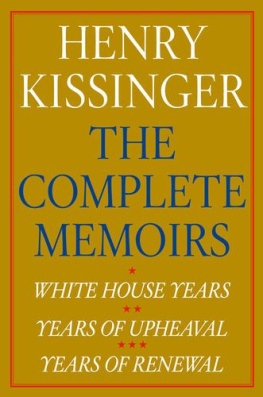

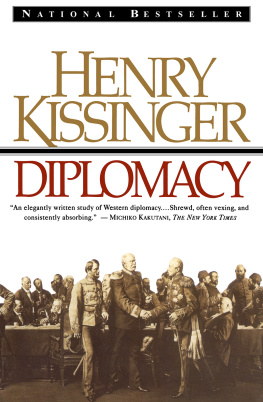
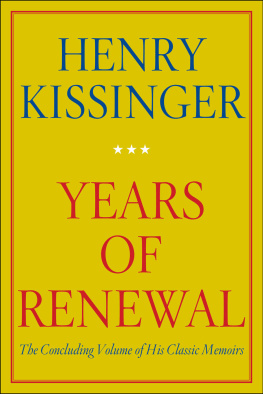
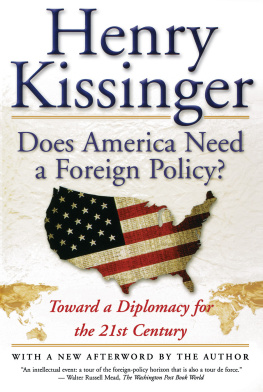
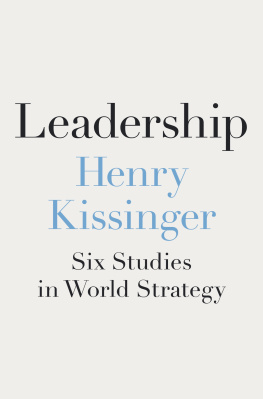
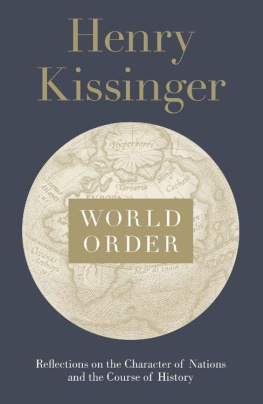
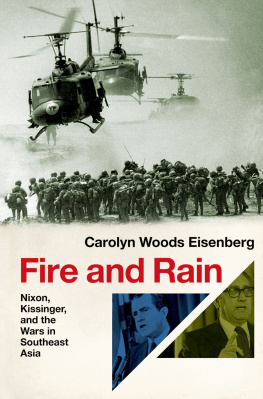

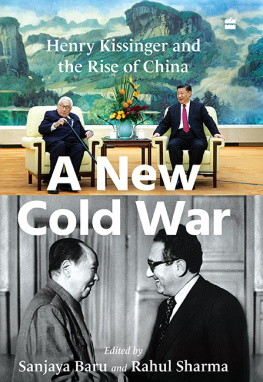
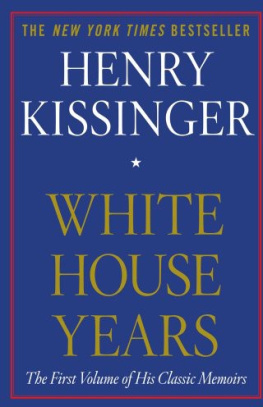
![Kissinger - Years of Upheaval: [VOL2 Classic Memoirs]](/uploads/posts/book/181244/thumbs/kissinger-years-of-upheaval-vol2-classic.jpg)
